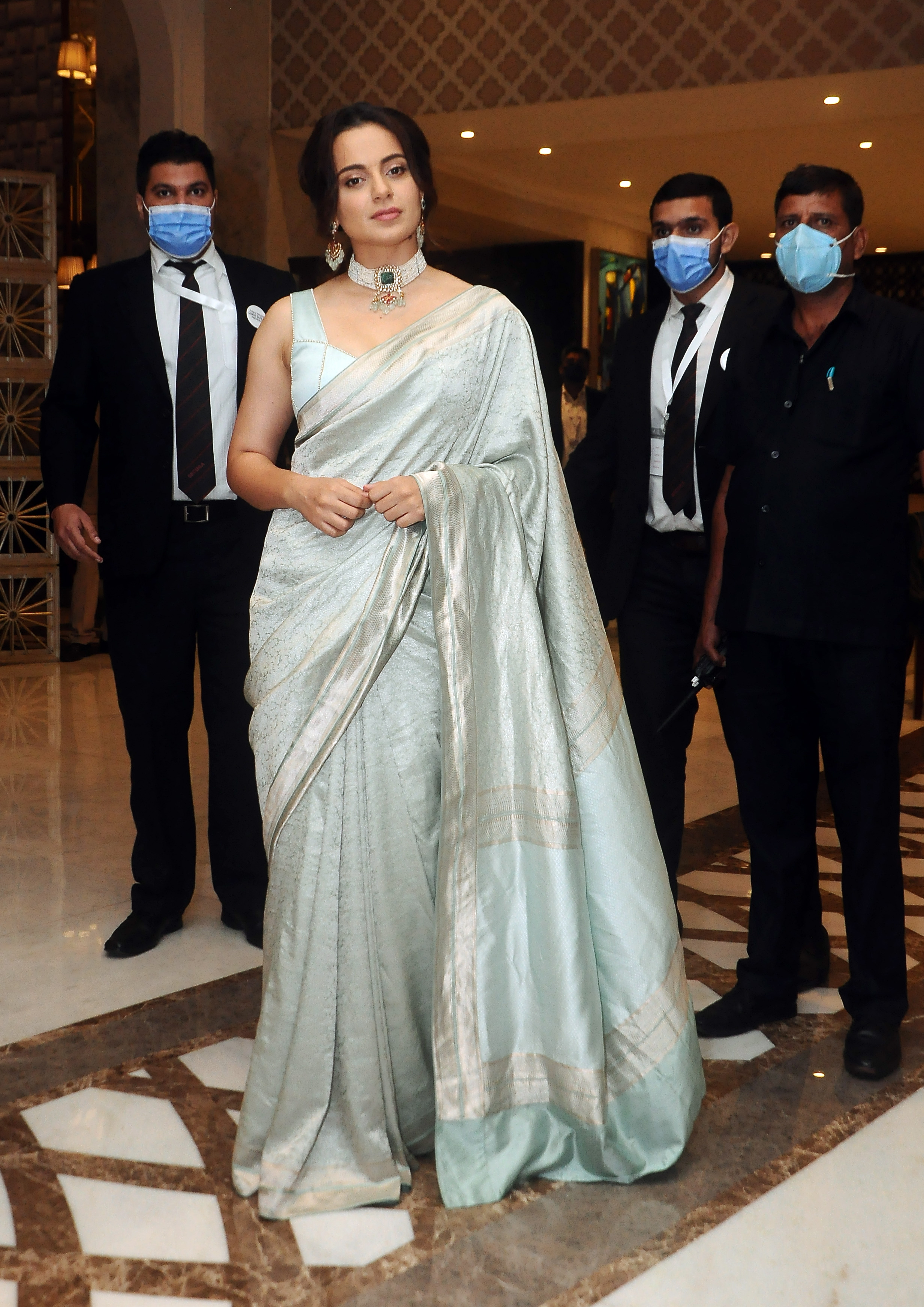Freedom of expression does and should cover the right to express weird and unwise views. Since individual liberty includes the right to be weird and unwise, there is no reason one should be allowed to say outlandish things, as Kangana Ranaut said.
The alternative to illiberal attitudes and policies in our country is not a resolute action plan committed to liberty; it is an equally, if not more, illiberal stance. Political parties vie with each other in their assaults on individual freedom, be it of speech or of action. Nothing else explains the Aam Aadmi Party’s (AAP’s) demand that a case be registered against film actor Kangana Ranaut for her reported remarks that India attained freedom not in 1947 but 2014.
Preeti Sharma Menon, AAP’s national executive member, called Ranaut’s remarks “seditious and inflammatory”. She tweeted: “Submitted an application to @MumbaiPolice requesting action on Kangana Ranaut for her seditious and inflammatory statements on @TimesNow, under sections 504, 505 and 124A. Hope to see some action.”
Other politicians too have slammed Ranaut for her remarks, especially the one in which she equated 1947 Independence with “bheekh” (alms): “That was not freedom but bheekh, and the freedom came in 2014.”
Evidently, she was referring to the victory of the Bharatiya Janata Party in 2014. This seems to be about the BJP government which recently bestowed the Padma Shri on her.
Two points need to be made here. First, Ranaut is not the first person to make similar assertions about 1947. Soon after Independence, the Communist Party of India and many socialists made similar statements. In 1948, the undivided CPI raised the slogan “Yeh azaadi jhooti hai (This Independence is false)”. In fact, the then CPI boss, B.T. Ranadive had coined the slogan. The Left’s contention was that since political freedom did not lead to the social and economic changes they had envisaged and desired, it was phony.
Second, freedom of expression does and should cover the right to express weird and unwise views. Since individual liberty includes the right to be weird and unwise, there is no reason one should be allowed to say outlandish things, as Ranaut just said.
In fact, free speech—if it is free in a meaningful and substantive manner—must include the right to offend sensibilities, hurt sentiments and misinform people. Otherwise, it is constrained speech; and what is constrained can never be called free. In a truly free society, speech can be restricted only if it causes harm to somebody. Offended sensibilities don’t qualify as harm.
Had social reformers like Raja Ram Mohan Roy and Swami Dayanand of the 19th century not spoken their minds with the deeds and words, India would have been benighted today as it was in the medieval period. Unconscionable practices like suttee and untouchability may have been rampant even today.
Further, if lying is criminalised, most politicians—and not a few journalists—will land in jail. As for misinformation, nobody can tell it from information. For instance, owing to a pro-China lobby of scientists and others, for over a year big tech practically banned everything that didn’t conform to the natural origin theory of the novel coronavirus. The notion that the novel coronavirus has a natural origin—this was accepted as “information”, if not gospel truth. As a natural corollary, everything else was dismissed as “misinformation”. Now we know that the natural origin theory, the so-called information, is seriously being questioned.
Therefore, Ranaut can be lambasted and lampooned for her outlandish views but she cannot and should not be prosecuted for this reason. Unfortunately, this is what many people are asking for. For example, a BJP MP, Varun Gandhi, tweeted in Hindi, “Insulting the sacrifice of Mahatma Gandhi sometimes, praising his killer sometimes, and now the disdain for the sacrifices of Mangal Pandey, Rani Laxmibai, Bhagat Singh, Chandrashekhar Azad, Netaji Subhash Chandra Bose and lakhs of freedom fighters. Should I call this thinking madness or treason?”
AAP’s Menon wants the film actress to be charged with sedition. Congress spokesperson Gourav Vallabh couldn’t agree more with BJP’s Varun Gandhi; what Kangana Ranaut has said is “direct treason,” Vallabh said. Vallabh said, “The government of India should take back the prestigious Padma award from such a lady who is insulting Mahatma Gandhi, Sardar Bhagat Singh, Subhash Chandra Bose, Sardar Vallabhbhai Patel. If the government is giving her Padma award, it means the government is promoting these kinds of people.” Notice the unanimity of views among the political parties which fight and abuse each other daily. On matters of national importance—like China’s belligerence and the choking air pollution in north India—they seldom come together for the greater good. But when it comes to some silly remarks made by some celebrity, they begin ranting and canting. Free speech is usually a casualty of ranting and canting.
Ravi Shanker Kapoor is a freelance journalist.

